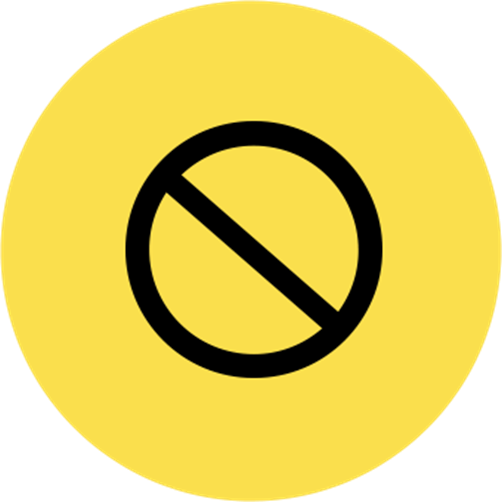What are Hallucinogens? Health Effects, Risks & Use
Also known as: LSD | Acid | Trips | Mushies | Tabs
Want to know more?
What are hallucinogens?
A hallucinogen is a drug or chemical capable of producing hallucinations. A hallucination is a false perception through one of the senses (for example, seeing or hearing something that is not there). Hallucinogens can also alter mood and perception amongst other brain processes.
Hallucinogens can be produced naturally or synthetically. The most commonly known hallucinogen is synthetic lysergic acid diethylamide (LSD) which is sold as a liquid, an absorbent tab or small square of paper. Natural hallucinogenic chemicals can also be found in plants such as the peyote cactus (mescaline) and some mushrooms (psilocybin).
Certain drugs such as cannabis and ecstasy may produce hallucinogenic effects at high doses or in some circumstances.
WHERE DO HALLUCINOGENS COME FROM?
Lysergic acid diethylamide (LSD) is the most commonly used hallucinogen in Australia. LSD was first produced in 1938 by Albert Hoffman, a Swiss chemist.
The drug is usually sold on small pieces of absorbent paper (tabs) decorated with popular designs, such as smiley faces and cartoons. It may also be sold on sugar cubes, small squares of gelatine or in capsule, tablet or liquid form.
Mescaline, found in the peyote cactus is native to Mexico and was used by the Mexican Indians in their religious ceremonies. Mescaline is usually dried and refined into a powder, which varies from white to brown in colour.
Psilocybin is a chemical found in mushrooms, known as magic mushrooms or golden top mushrooms, which are commonly found growing in Australia. Psilocybin may be sold as crude mushroom preparations or whole dried brown mushrooms.
HOW ARE HALLUCINOGENS USED?
Lysergic acid diethylamide (LSD) is usually swallowed. When swallowed, the effects start within 30 to 60 minutes and peak in three to five hours. The effects usually last for up to nine hours, but they can last for 24 hours.
Mescaline can be chewed or boiled into a liquid and drunk. Its effects last from four to six hours.
Magic mushrooms are either eaten raw, cooked, made into a drink or dried for later consumption. The effects usually last from four to six hours.
Health Effects and Risks
The effects of hallucinogens will vary depending on:
the person – mood, physical size, health, gender, previous experience with hallucinogens, expectations of the drug, personality, whether the person has had food and whether other drugs have been taken.
the drug– the amount used, its purity, how often it is used and the way it is taken.
the place – whether the person is using with friends, on his/her own, in a social setting or at home, at work or before driving.
Short-term effects
- Dilation of the pupils
- Increase in heart rate and blood pressure
- Decrease in body temperature and chills
- Increase in body temperature and sweating
- Dizziness and drowsiness
- Nausea and vomiting
- Impaired coordination and tremors
Long-term effects
Hallucinogens, pregnancy and breastfeeding
The use of Lysergic acid diethylamide (LSD) and other hallucinogens seems to be linked to an increased risk of miscarriage and complications throughout pregnancy. There may also be a higher incidence of birth defects among babies born to women using LSD during pregnancy.
It is recommended that women check with their doctor (or other health professional) if they are using or planning to use drugs while pregnant or breastfeeding, including prescribed and over-the-counter medicines.
Hallucinogens and Mental Health
Hallucinogen use can cause a range of mental health issues. The effects will vary depending on:
- the person – Mood, physical size, health, gender, previous experience with hallucinogens, expectations of the drug, personality, whether the person has had food and whether other drugs have been taken.
- the drug – The amount used, its purity, how often it is used, and whether it is smoked, swallowed, snorted or injected.
- the place – Whether the person is using with friends, on his/her own, in a social setting or at home, at work or before driving.
Short term effects
- Seeing things in a distorted way or seeing things that don’t exist.
- Distorted sense of time – minutes can seem like hours.
- Varying emotions.
Short-term effects of high-doses
- Distorted sense of time – minutes can seem like hours.
- Varying emotions.
- Distorted sense of space and body.
- Lack of perception.
- Tension and anxiety leading to panic attacks.
- Seeing things in a distorted way or seeing things that don’t exist.
Long-term effects
- Flashbacks
- Increase risk of developing severe mental disturbances in those who have a predisposition to the condition.
- Impaired memory and concentration.
- Psychological dependence.
Hallucinogen use can cause anxiety, depression, paranoia, psychosis, flashbacks and panic attacks in those people who have a vulnerability to mental health problems.
Hallucinogens and Flashbacks
Flashbacks are a spontaneous and unpredictable recurrence of a prior drug experience (tripping) without taking the drug. Flashbacks may occur days, weeks or years after the drug was last taken. They can be triggered by the use of other drugs, stress, fatigue and physical exercise or for no apparent reason.
Hallucinogens and Panic Attacks
Hallucinogen use has very strong effects on the brain and can cause panic attacks which can be incredibly frightening. A panic attack can include a racing heart, sweating, and feelings of intense fear in response to an immediate sense of danger and the body’s fight or flight response. Hallucinogen use can cause your body to sense immense fear or danger even when it is not present which can result in a panic attack.
Impact on your life
Hallucinogens use can impact on your life in many ways. It can lead to relationship, financial and legal problems.
Hallucinogens and relationship problems
Drug use can lead to social and emotional problems and can affect relationships with family and friends. When users are under the influence of hallucinogens their mood can be unpredictable and/or extreme. Changes may occur depending on how they feel (for example, euphoric, sick, energetic or angry), which may lead to problems with friends and family members.
Hallucinogens and financial problems
The street prices of LSD, mescaline and magic mushrooms vary depending on availability, market trends and quality. The cost of purchasing hallucinogens can lead to financial problems for both occasional and regular users.
Hallucinogens and the law
Misuse of Drugs Act
In Western Australia, under the Misuse of Drugs Act 1981, it is illegal to use, possess, manufacture or supply hallucinogens.
Offences under this Act carry heavy fines and/or prison sentences.
Penalties vary depending on the offence:
- Possession offences: up to $2,000 in fines and/or two years in prison.
- Supply offences: up to $100,000 in fines and/or 25 years in prison.
A person convicted of a drug offence can receive a criminal record, which can lead to difficulties in getting a job, health insurance, credit or visas for overseas travel.
Drug driving
In Western Australia, it is against the law for anyone to drive with the presence of an illicit drug prescribed within the Road Traffic Act 1974, or impaired by a drug.
Hallucinogens can distort a person’s perception of speed, distances and their visual acuity. These effects can greatly impact on driving ability. Hallucinogens in combination with alcohol can severely impair driving performance.
Hallucinogens and other drugs
Hallucinogen users sometimes take more than one drug at the same time. Effects can be unpredictable when two or more different drugs are combined.
Using hallucinogens with other drugs such as alcohol or amphetamines increases the risk of complications and side-effects, and can lead to a variety of serious physical and psychological problems.

Quitting Options
People decide to quit using hallucinogens for a lot of reasons including it is harming their physical and/or mental health and wellbeing, their relationships with friends and others they care about, or because they are starting new employment and may be drug tested.
Thinking about quitting your hallucinogen use? Worried you may struggle? You are not alone. Help is only a phone call away.
You can call a qualified alcohol and other drug counsellor at the Alcohol and Drug Support Line. The counsellors can assist in planning your quit attempt, and talk with you about the options available to assist you. You can call them 24/7 on (08) 9442 5000 or 1800 198 024 (country callers).
See the Staying Safe section for harm reduction tips.



